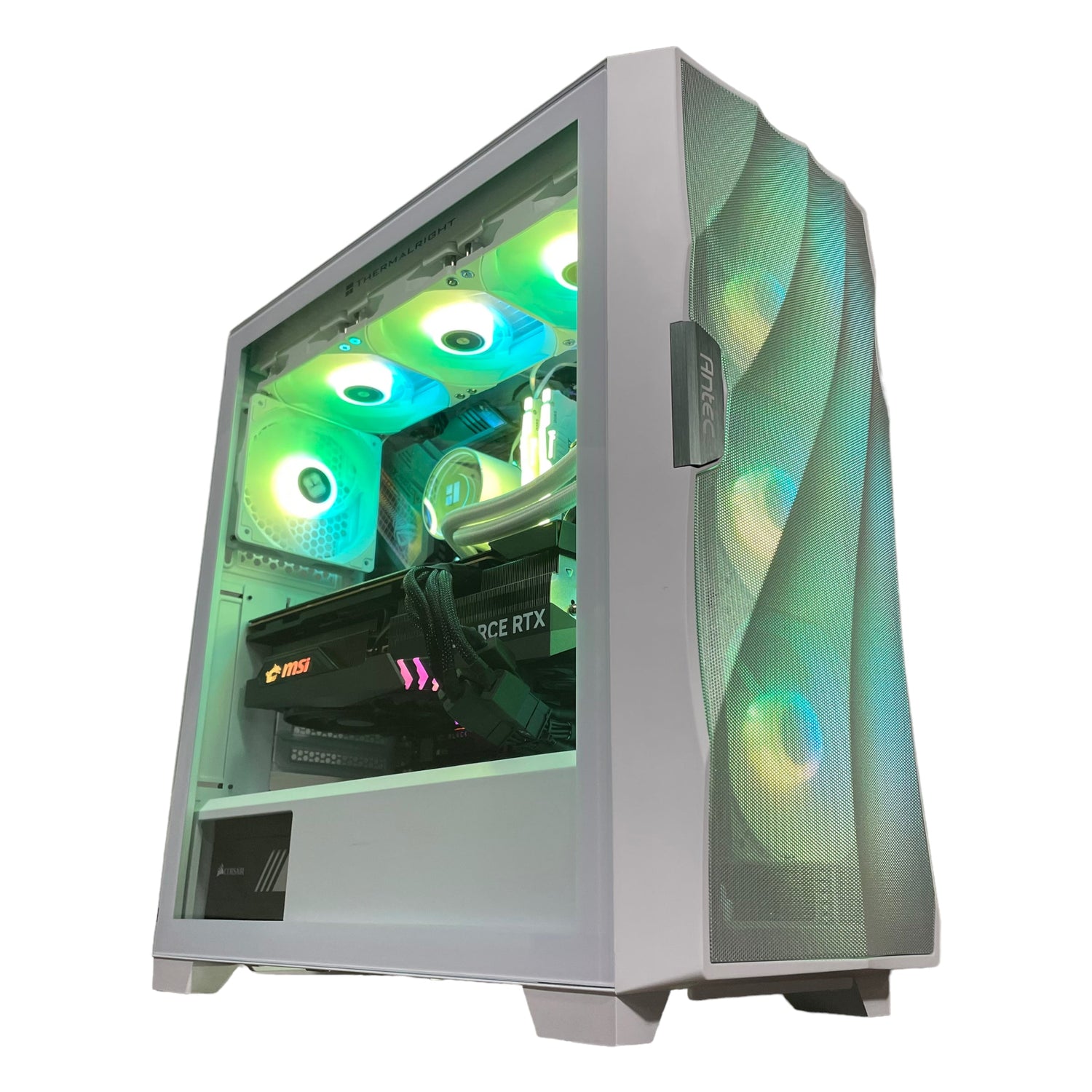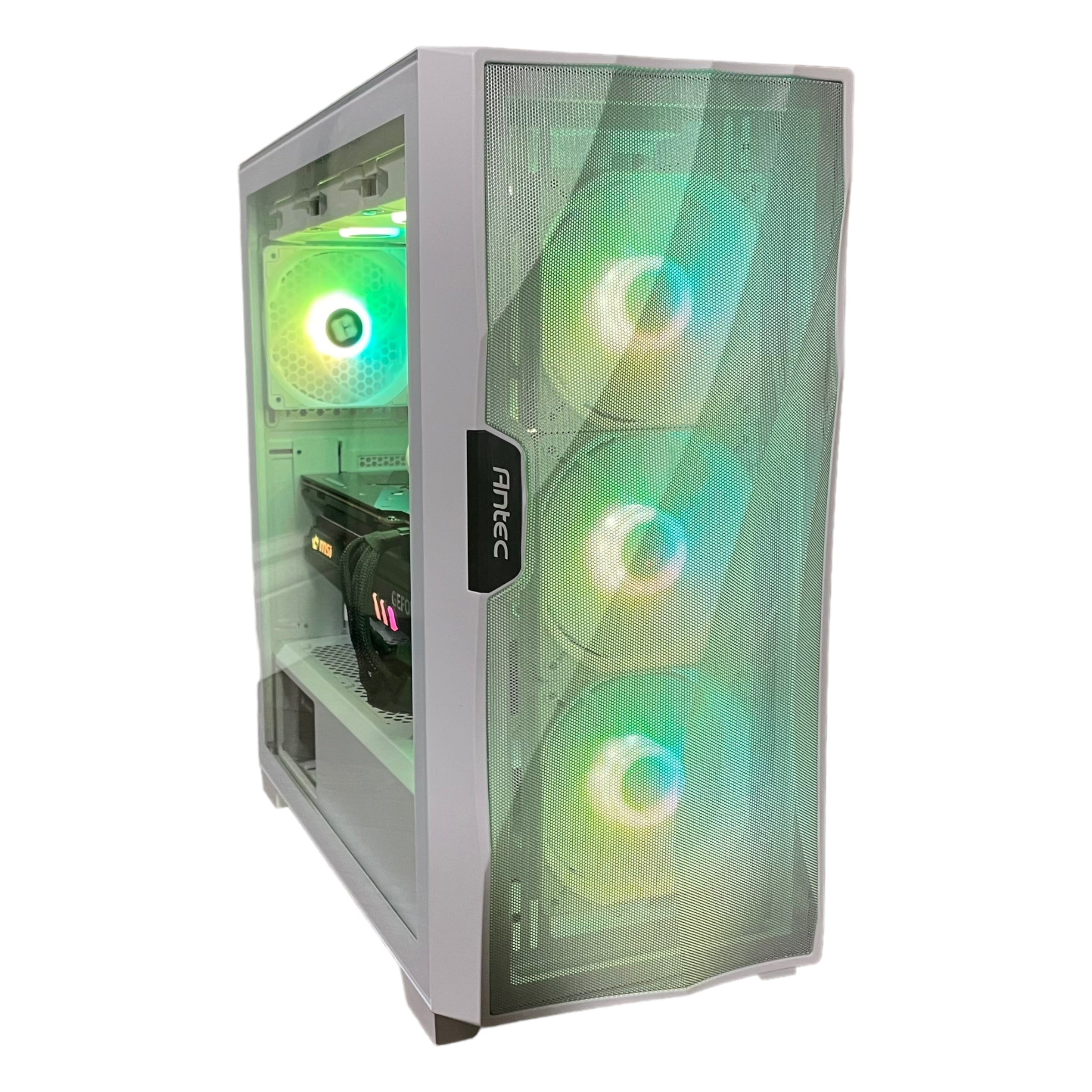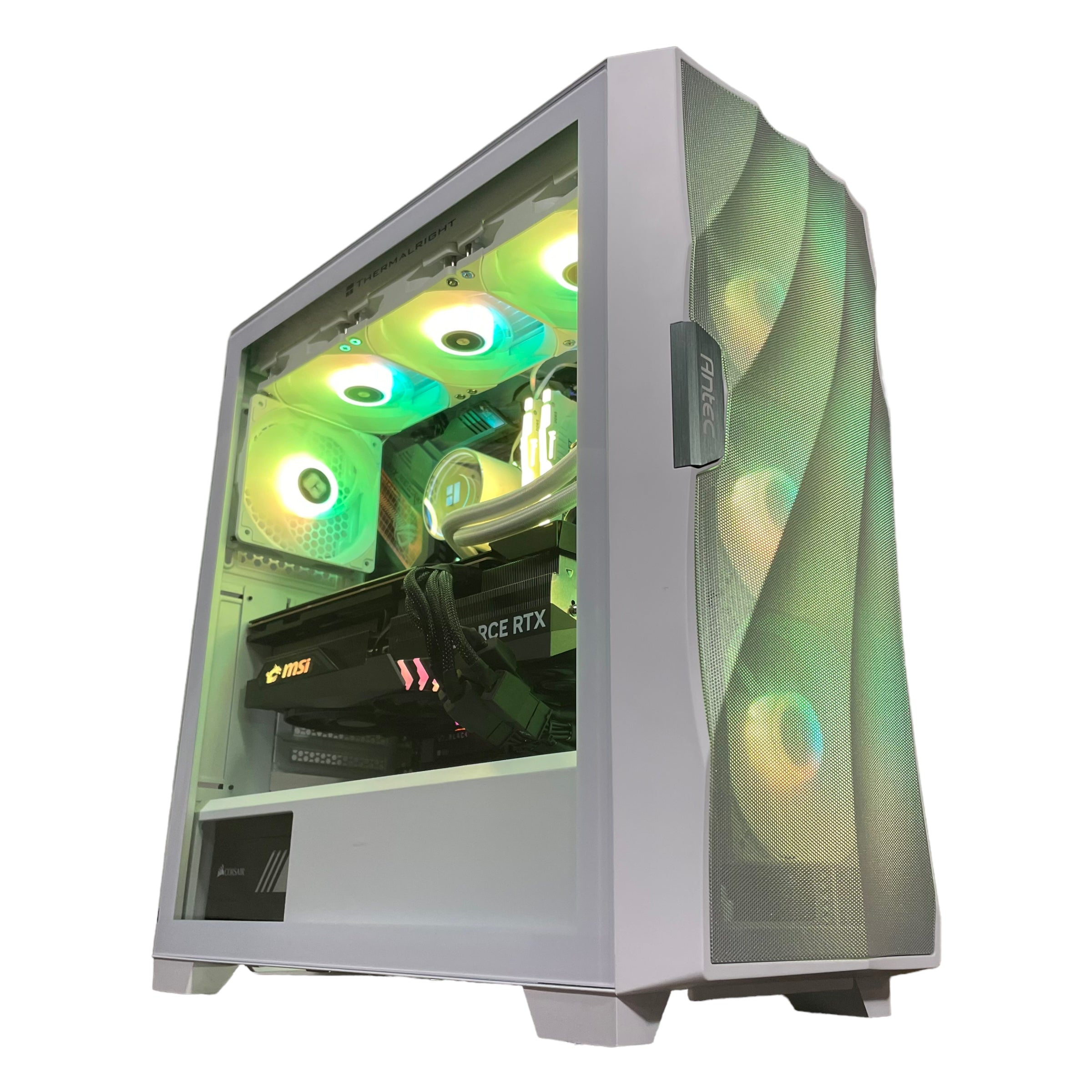
Welcome to the ultimate guide for all the gaming enthusiasts out there who are ready to take their gaming experience to new heights! Building your own gaming PC is not just about assembling components; it's about embarking on an epic journey filled with excitement, customization, and the thrill of creating something truly unique. In this comprehensive guide, we'll walk you through every step of the process, from selecting the right components to troubleshooting common issues, ensuring that you emerge victorious with the gaming rig of your dreams.
Unleashing Your Inner Gamer: Introduction to Building a Gaming PC
Imagine the anticipation of unboxing each component, the joy of assembling them piece by piece, and the sense of accomplishment as you power up your newly built gaming rig for the first time. Building a gaming PC is more than just a hobby; it's a creative endeavor that allows you to express your personality and passion for gaming. Whether you're a seasoned gamer or a parent looking to share the joy of gaming with your kids, building your own PC is an experience like no other.
Understanding the Anatomy of a Gaming PC
Before we dive into the nitty-gritty of building your gaming rig, let's familiarize ourselves with the key components that make up a gaming PC.
Exploring Core Components
- Central Processing Unit (CPU) Essentials: The CPU acts as the brain of your gaming PC, executing instructions and ensuring smooth gameplay. We'll help you navigate the world of CPUs, from choosing between Intel and AMD to understanding core counts and overclocking potential.
- Graphics Processing Unit (GPU) Fundamentals: The GPU, or graphics card, is responsible for rendering stunning visuals in your favorite games. Dive into GPU specifications, VRAM size, and cutting-edge technologies like ray tracing and DLSS.
-
Motherboard Selection and Considerations: The motherboard serves as the backbone of your PC, connecting all components seamlessly. Learn how to choose the right motherboard for your build and understand its key features.
-
Memory Modules: RAM and Its Significance: RAM plays a crucial role in multitasking and overall system performance. Discover how to select the right amount of RAM to optimize your gaming experience.
Peripheral Components for Enhanced Gaming
-
High-Performance Storage Solutions: Speed up load times and ensure smooth gameplay with high-performance storage solutions like SSDs.
-
Power Supply Units (PSU) Decoded: The PSU provides power to your components, so choosing the right one is essential for a stable and reliable system.
-
Cooling Systems and Their Importance: Proper cooling is crucial for maintaining optimal performance and longevity. Explore air and liquid cooling options to keep your system running smoothly.
-
Optimal Case Selection and Airflow Management: Your PC case not only houses your components but also affects airflow and aesthetics. Learn how to choose the best case for your build and optimize airflow for maximum cooling efficiency.
Choosing the Right Components for Your Gaming Rig
Now that you're familiar with the essential components of a gaming PC, it's time to embark on the exciting journey of selecting the perfect parts for your build.
Navigating Processor Selection
The CPU is the heart of your gaming rig, so choosing the right one is crucial for optimal performance. Here's what you need to know:
-
CPU Architecture and Types: Intel and AMD are the two major players in the CPU market, each offering a range of processors tailored to different needs and budgets.
-
Core Count and Performance: While more cores can improve multitasking performance, they may not always translate to better gaming performance. We'll help you understand how core count affects gaming and choose the right CPU for your needs.
-
Overclocking Potential and Considerations: Overclocking can unleash the full potential of your CPU but requires careful consideration to avoid overheating and instability.
Exploring Graphics Card Choices
The graphics card is arguably the most important component for gaming performance, as it directly impacts visual quality and frame rates. Here's what you need to know when choosing a GPU:
-
GPU Specifications Unveiled: Dive into VRAM size, ray tracing, and DLSS technology to understand how they affect gaming performance and visual fidelity.
-
Top Graphics Cards for Different Gaming Tiers: Whether you're on a budget or aiming for 4K gaming glory, we'll help you find the perfect GPU for your gaming needs.
Step-by-Step Guide to Building Your Gaming Desktop
Now comes the most exciting part: assembling your gaming rig from scratch! Follow our step-by-step guide to bring your dream PC to life:
-
Preparing the Workspace and Tools: Set up your workspace and gather the essential tools you'll need for the build.
-
Installing the CPU and CPU Cooler: Learn how to install the CPU and its cooling solution to ensure optimal performance and temperature management.
-
Mounting the Motherboard and Connecting Components: Secure the motherboard in the case and connect essential components like RAM, GPU, and storage drives.
-
Installing Memory (RAM) Modules: Add RAM modules to your motherboard to boost multitasking performance and overall system speed.
-
Adding Graphics Card and Expansion Cards: Install your graphics card and any additional expansion cards to enhance your gaming experience.
-
Connecting Storage Drives for Speed and Capacity: Connect SSDs or HDDs to store your games, files, and media.
-
Power Supply Unit Installation and Cable Management: Install the PSU and manage cables to ensure proper airflow and aesthetics.
-
Setting Up Cooling Solutions for Optimal Performance: Install fans or liquid cooling solutions to keep your system cool during intense gaming sessions.
-
Booting Up and Initial BIOS Configuration: Power up your system and configure the BIOS settings to ensure compatibility and stability.
Troubleshooting and Performance Optimization
Even the most meticulously planned builds can encounter issues, but fear not! We'll help you troubleshoot common problems and optimize your system for peak performance:
-
Common Building Mistakes to Avoid: Learn from the mistakes of others and avoid common pitfalls during the building process.
-
Diagnosing Hardware Compatibility Issues: Ensure that all your components work seamlessly together by identifying and resolving compatibility issues.
-
Overcoming Heating and Cooling Challenges: Keep your system cool and stable with proper cooling solutions and temperature management techniques.
-
Optimizing Performance through Software Tweaks: Fine-tune your system for maximum performance with software optimizations and tweaks.
-
Final Touches and Cable Management: Put the finishing touches on your build with cable management and personalized flair.
Testing Your Gaming PC
Before you embark on your gaming adventures, it's essential to ensure that your system is up to the task. Here's how to benchmark and stress test your gaming rig:
-
Benchmarking Your System for Performance Analysis: Run benchmark tests to evaluate your system's performance and identify any areas for improvement.
-
Stress Testing and Temperature Monitoring: Stress test your components to ensure stability and monitor temperatures to prevent overheating.




Leave a comment
All comments are moderated before being published.
This site is protected by hCaptcha and the hCaptcha Privacy Policy and Terms of Service apply.